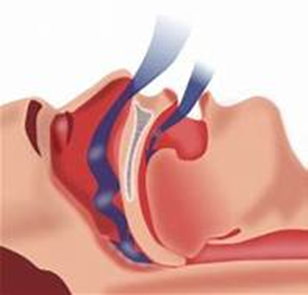A patient who has difficulty falling asleep at night because of anxiety over family problems asks if he should start taking sedative pills from the pharmacy to sleep better.
The best advice to give this patient is that these pills can be used for:.
long periods of time, but it is best to check with the primary care provider first.
short periods of time without physician approval, because they are nonprescription medications.
short periods of time, but it is best to check with the primary care provider first.
long periods of time without primary care provider approval, because they are nonprescription medications.
The Correct Answer is C
Choice A rationale:
It is not advisable to use sedative pills for long periods of time without consulting a primary care provider. Prolonged use of sedatives can lead to dependence and other adverse effects. Therefore, this choice is incorrect.
Choice B rationale:
Using sedative pills for short periods of time without physician approval is not a safe practice. Even nonprescription medications, including over-the-counter sedatives, should be used under the guidance of a healthcare provider. This choice is incorrect.
Choice C rationale:
The best advice for the patient is to use sedative pills for short periods of time, but it is best to check with the primary care provider first. This is the most appropriate choice as it emphasizes short-term use while also promoting communication with a healthcare provider to ensure the medication's safety and effectiveness.
Choice D rationale:
Using sedative pills for long periods of time without primary care provider approval is not recommended. It can lead to potential risks and side effects associated with prolonged sedative use. Therefore, this choice is incorrect.
Nursing Test Bank
Naxlex Comprehensive Predictor Exams
Related Questions
Correct Answer is D
Explanation
Choice A rationale:
The CPAP device should not fit loosely on the face. It should fit snugly to create a proper seal and maintain positive airway pressure. A loose-fitting CPAP mask may not effectively treat obstructive sleep apnea (OSA).
Choice B rationale:
The CPAP device typically delivers consistent pressure throughout both inhalation and exhalation. It does not deliver less pressure during exhalation. The purpose of CPAP is to maintain a constant pressure to keep the airway open during both phases of the respiratory cycle.
Choice C rationale:
The CPAP device does not require an invasive ventilation tube. It uses a mask that covers the nose or both the nose and mouth to deliver positive airway pressure. It is non-invasive and is designed to keep the airway open by delivering pressurized air.
Correct Answer is C
Explanation
The correct answer is: C. Decreased energy.
Choice A reason: Hypotension is not typically associated with obstructive sleep apnea (OSA). OSA is more commonly linked with hypertension due to the frequent arousals during sleep that activate the sympathetic nervous system, leading to increased blood pressure.
Choice B reason: Pneumonia is an infection of the lungs and is not a direct consequence of OSA. While OSA can affect the respiratory system, it does not cause pneumonia. However, individuals with OSA may have a higher risk of respiratory infections due to compromised breathing during sleep.
Choice C reason: Decreased energy is a common symptom of OSA. People with OSA experience repeated episodes of partial or complete upper airway obstruction during sleep, leading to disrupted sleep patterns and insufficient rest. This results in daytime sleepiness and fatigue, which are hallmark signs of the condition.
Choice D reason: Thyroid disease, specifically hypothyroidism, can be associated with OSA, but it is not a direct finding of the condition. Hypothyroidism can lead to changes in the soft tissues of the upper airway and contribute to the development of OSA, but it is not a symptom used to diagnose OSA.

Whether you are a student looking to ace your exams or a practicing nurse seeking to enhance your expertise , our nursing education contents will empower you with the confidence and competence to make a difference in the lives of patients and become a respected leader in the healthcare field.
Visit Naxlex, invest in your future and unlock endless possibilities with our unparalleled nursing education contents today
Report Wrong Answer on the Current Question
Do you disagree with the answer? If yes, what is your expected answer? Explain.
Kindly be descriptive with the issue you are facing.
